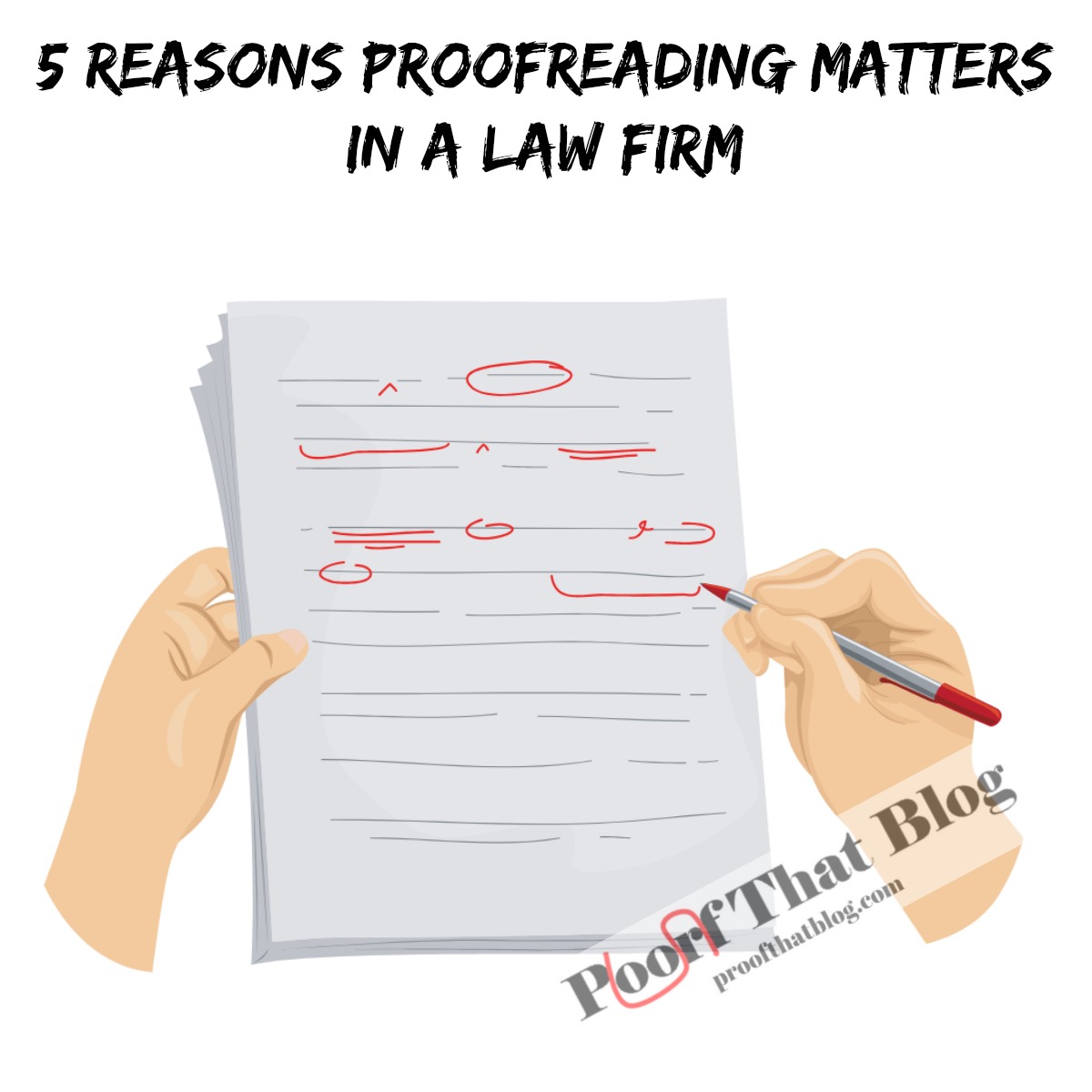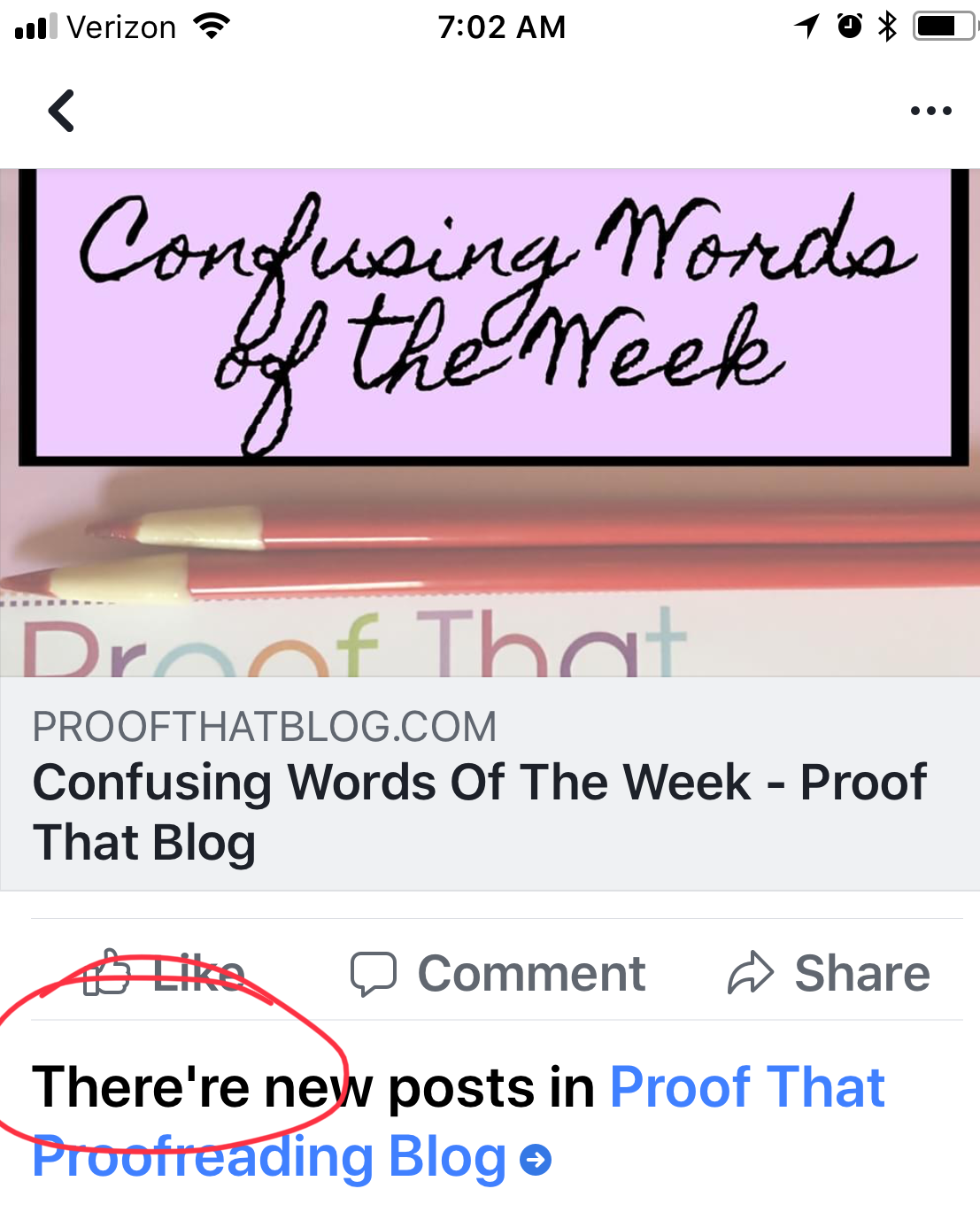 Proofreading is important in every office but has specific importance in law offices. Here are five reasons why:
Proofreading is important in every office but has specific importance in law offices. Here are five reasons why:
- It’s important to have defined terms in legal agreements and documents and to make sure those defined terms are treated as you’ve defined them throughout the document. If you’ve defined it with an initial capital, then it should have an initial capital every time it is used as defined. We had a case where an important piece of the evidence was whether the lower case word had a different meaning than the same word with an initial cap. It really does make a difference.
- There are many cases that have hinged on punctuation, capitalization, word definitions, etc. A future blog post will delve into some of the most interesting of these. In the meantime, there was a recent case in Maine that turned on the lack of a serial (or Oxford) comma. The case reportedly settled for $5 million. See the blog post about that here.
- Pieces of demonstrative evidence that include errors that could be caught with good proofreading become less impactful. In a jury case, it could taint the way the jury sees your client–whether that is justified or not–and it could convince the jury to ignore that evidence.
- Overall, errors in public documents, emails, correspondence, and anything that your office sends out make a bad impression of your firm. Your firm website is just as important and I have seen many errors on many law firms’ websites. If you’re using that for marketing and hoping someone will use your firm, do you think the chances are any good if all they see are errors? That is what I would be expecting from any other work coming from that office. Remember that some of this information is the first contact someone has with your firm. If it is full of errors, that is not the impression you want to make.
- In litigation, the one person you really want to impress is the judge. If a judge has a good grasp of the English language (and most of them do), it is difficult to read something that is rife with errors. In fact, one judge in the Southern District of Florida, Judge Cecilia M. Altonaga, was trying to rule on a motion to dismiss that had been filed in one of her cases. But no one could understand even what the allegations were. Judge Altonaga opened her order by talking about the errors:
“The Court notes Plaintiff’s proposed Second Amended Complaint is replete with grammatical errors, including improper punctuation, misspelling of words, incorrect conjugation of verbs, and lack of apostrophes when required for possessive adjectives; sentence fragments; and nonsensical sentences. The proposed Second Amended Complaint is also an eyesore, with its formatting errors and spaces.”
Judge Altonaga did rule that the plaintiff could file a second amended complaint, but plaintiff’s counsel must “certif[y] the pleading has been reviewed and approved by a teacher of the English language — such certification is to be included in the notice of filing the second amended complaint.” If you want the gory details, check out this Above The Law article – https://abovethelaw.com/2018/01/lawyers-pleadings-are-so-bad-that-judge-orders-future-filings-must-be-reviewed-by-english-teacher/
Another judge, U.S. District Court Judge Gregory A. Presnell of the Middle District of Florida, actually went so far as to redline a motion that he found “riddled with unprofessional grammatical and typographical errors that nearly render the entire Motion incomprehensible.” He returned the edited motion to the attorney with an order to “re-read the Local Rules and the Federal Rules of Civil Procedure in their entirety . . . [and] personally hand deliver a copy of this Order, together with the Court’s [edited motion] to his client.” Those details are at http://apps.americanbar.org/litigation/litigationnews/top_stories/presnell-redlined-motion.html. So not only did he get called out in an order from the judge, but the judge ordered the attorney to give his client a copy of the motion THAT THE COURT EDITED! Do you think the client will want to pay that bill?
I cannot imagine anything more embarrassing to an attorney or more devastating to a firm’s bottom line than these kinds of articles published about specific attorneys and firms.
Proofreading matters.
 It’s time for “Confusing Words of the Week” where I take a set of two or three words that get confused and give you definitions and try to give you a memory trick to help you remember when to use which word. If you have words that confuse you, use the Ask PTB tab on the website or send an email to proofthatblog@gmail.com and they may appear here soon!
It’s time for “Confusing Words of the Week” where I take a set of two or three words that get confused and give you definitions and try to give you a memory trick to help you remember when to use which word. If you have words that confuse you, use the Ask PTB tab on the website or send an email to proofthatblog@gmail.com and they may appear here soon!


 Follow
Follow

 It’s time for a review of recent blog posts just in case you’ve missed them. We call this Replay Thursday. Here are posts from Proof That proofreading blog and 60 Is The New 60 blog during the past week.
It’s time for a review of recent blog posts just in case you’ve missed them. We call this Replay Thursday. Here are posts from Proof That proofreading blog and 60 Is The New 60 blog during the past week. Proofreading is important in every office but has specific importance in law offices. Here are five reasons why:
Proofreading is important in every office but has specific importance in law offices. Here are five reasons why: It’s time for “Confusing Words of the Week” where I take a set of two or three words that get confused and give you definitions and try to give you a memory trick to help you remember when to use which word. If you have words that confuse you, use the Ask PTB tab on the website or send an email to
It’s time for “Confusing Words of the Week” where I take a set of two or three words that get confused and give you definitions and try to give you a memory trick to help you remember when to use which word. If you have words that confuse you, use the Ask PTB tab on the website or send an email to 

